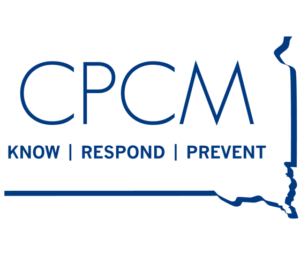CPCM releases inaugural Data Initiative Annual Report
The Center for the Prevention of Child Maltreatment has released the first State of South Dakota Children’s Wellbeing Data Initiative Report.
In 2021, through support from the South Dakota Department of Education, CPCM launched the State of South Dakota Children’s Wellbeing Data Initiative. The initial project spans from August 2021 to September 2023 and seeks to investigate data in South Dakota surrounding the health and wellness of children for the purpose of:
- Improving state- and local-level tracking and monitoring of children’s wellbeing data in South Dakota,
- Improving statewide access to timely and relevant data on the wellbeing of South Dakota children, and
- Increasing state-level data-driven decision-making to promote the wellbeing of South Dakota children.
According to the Centers for the Prevention of Disease Control, a critical first step in preventing adversity in childhood is conducting surveillance, which allows understanding of the scope of the problem, where and when childhood trauma is most likely to occur, and who is at greatest risk.
“The Data Initiative aims to increase our understanding of data on adverse childhood experiences, or ACEs, in South Dakota and to build and promulgate a statewide, data-driven public health approach that engages essential partners in identifying and implementing effective ACEs prevention and response strategies,” said Tracey McMahon, CPMC Data Manager.
The Data Initiative supports the development of a dashboard of available data sources for key indicators of children’s wellbeing and the publication of annual reports. CPCM has partnered with ParaUX Design to create the dashboard, which is in the early phases of development. CPCM also partnered with Benchmark Data Labs to publish the State of South Dakota Children’s Wellbeing Data Initiative: 2021 Annual Report.
This inaugural report includes:
- A summary of findings collected via an electronic survey on data accessibility, gaps, and needs,
- Findings from a focus group held with South Dakota epidemiologists exploring common facilitators and barriers to accessing and sharing children’s health data, data gaps, and issues regarding data sovereignty,
- An overview of databases tracking South Dakota children’s wellbeing indicators, and
- An overview of the types of indicators tracked.
The State of South Dakota Children’s Wellbeing Data Initiative’s 2021 annual report is available at https://sdcpcm.com/data-initiative/.




